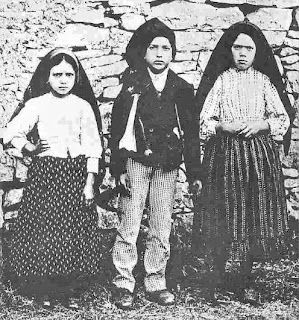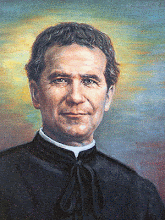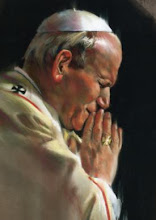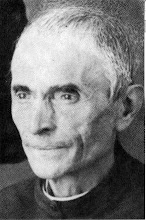The following comes from the Catholic Exchange:
There is a third human reaction to God’s holiness. It is an evil reaction; it rises from man’s contradictory nature and consists of a feeling of discomfort, irritation, and rebelliousness. A strange manifestation! One is inclined to ask how this can come about if God is the moving Spirit and essence of the universe, and man is His creature — “For in Him we live, and move, and are.”
It is indeed difficult to understand; it springs from the mystery of evil. Sin, ultimately, is resistance to the holiness of God. It would be a mistake to think of this resistance merely as an open rebellion against, or as a denial of, God.
Potentially it is present in all of us — sometimes stronger, sometimes weaker; sometimes quite openly, sometimes in the guise of self-sufficient (rational) culture, or healthy common sense. When resistance, open or otherwise, gains the upper hand, prayer becomes impossible.
We must watch out for signs of it in ourselves; we must face it, try to resolve or still it, or overcome it with firm determination, whichever may be for us the most effective way of dealing with it. Let us leave this and return to the two fundamental motives of prayer already referred to.
Prayer’s first motive: a sense of our own sinfulness
The first motive for prayer springs from man’s awareness of his own unworthiness before the holiness of God. Man recognizes that he is selfish, unjust, deficient, and impure. He acknowledges his own wrongdoings and tries to assess them: not merely those of today or of yesterday, but of the whole of his life. Beyond this he tries to visualize the whole of the human condition with its shortcomings. He realizes sin as it is understood by the Scriptures, sin as it is active in himself. He recognizes that sin is transgression of the moral law and of the natural law.
But even more, he recognizes that sin is contumacy before God’s holiness, that it is, therefore, not only wicked but unholy. He admits it and sides with God against himself; he says, in the words of the Psalm: “For I know my iniquity, and my sin is always before me. Against Thee only have I sinned, and have done evil before Thee: that Thou mayst be justified in Thy words, and mayst overcome when Thou art judged.”
We sometimes despair
A third form of evasion is caused by lack of courage. When man sees that he is constantly transgressing and that evil is deeply rooted in him, when he begins to feel that all is confusion and that there is no way out, he runs the risk of despairing of himself, especially when he is a person wanting in willpower and, perhaps, in logic. To hold out in these circumstances is most difficult because the mind seems to answer to all good intentions, “You’re not going to carry this through; you will do again what you have always done before.” There is only one remedy: to put aside all inner searchings and recriminations, to have done with all hesitations, and to put one’s absolute trust in God who “quickeneth the dead; and calleth those things that are not, as those that are.”
From this act of surrender to the Absolute, above and within us, will spring new resolve and new strength. We shall be able to say, “I will and shall, for God the omnipotent wills it.”
God’s forgiveness makes repentance possible
 There is another mysterious aspect of God’s power which makes it possible for man to acknowledge his wrong and to admit and confess his sins. Man knows this intuitively, and the Scriptures have revealed it to us. God is not only the prime cause of the good and the fount of all justice; He is the all-renewer. He can give a new beginning to what appears final and He can undo all deeds. The words of St. Paul quoted above point to this mystery. God who is the supreme holiness, which by definition excludes all evil, is willing and able to forgive and to renew.
There is another mysterious aspect of God’s power which makes it possible for man to acknowledge his wrong and to admit and confess his sins. Man knows this intuitively, and the Scriptures have revealed it to us. God is not only the prime cause of the good and the fount of all justice; He is the all-renewer. He can give a new beginning to what appears final and He can undo all deeds. The words of St. Paul quoted above point to this mystery. God who is the supreme holiness, which by definition excludes all evil, is willing and able to forgive and to renew.
True forgiveness, the forgiveness which we are seeking and which alone is of benefit to us, is a great mystery. It implies not only that God decides to overlook what has happened and turns lovingly toward the sinner; this would not be sufficient. God’s forgiveness is creative: it makes him who has become guilty free of all guilt. God gathers the guilty man into His holiness, makes him partake of it, and gives him a new beginning. It is to this mystery that man appeals when he acknowledges his sins, repents of them, and seeks forgiveness. This is the first of those two motives of prayer which come into being before God’s holiness.
Editor’s note: This article has been adapted from Romano Guardini’s The Art of Praying, available from Sophia Institute Press.

























